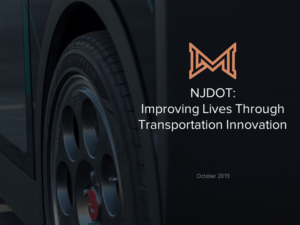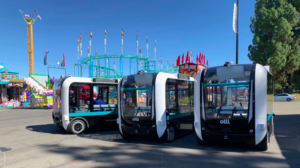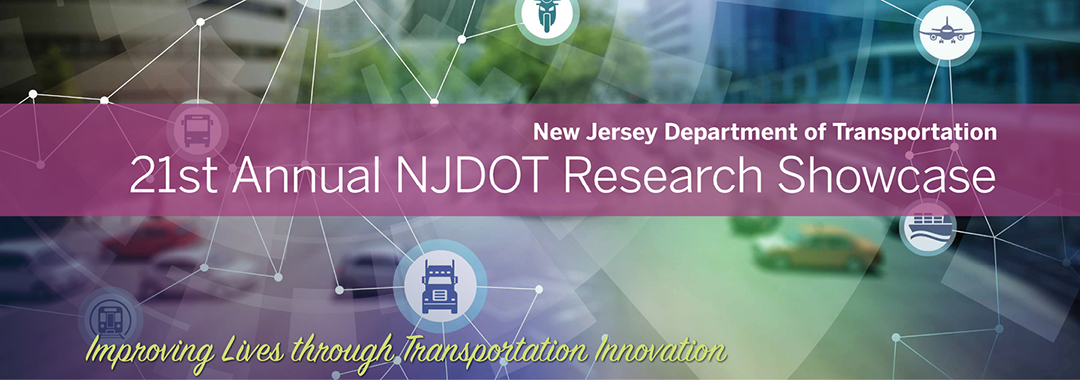The 21st Annual New Jersey Department of Transportation (NJDOT) Research Showcase was an opportunity for the New Jersey transportation community to learn about the broad scope of academic research initiatives underway and share technology transfer activities being conducted by institutions of higher education partners and their associates. The annual event serves to highlight the benefits of transportation research, including NJDOT's own research program. As part of the event, various awards were presented for implementation-minded research, innovation, and outstanding work performed by university students studying in a transportation-related field.
The day's Research Showcase Program included a plenary morning session with welcoming remarks, a keynote speaker and a knowledgeable panel of industry, university and NJDOT representatives offering their perspectives and fielding questions on how innovations in connectivity today and in the future may affect safety, mobility and equity. The afternoon included several rounds of breakout sessions on innovation, safety, equity and mobility as well as a poster session.
NJDOT Commissioner of Transportation, Diane Gutierrez-Scaccetti, provided opening remarks along with the Federal Highway Administration's Assistant Division Administrator in New Jersey, Valeriya Remezova.
 The morning's featured keynote speaker was David C. Woessner, an Executive Vice President for Corporate Development and External Affairs, at LM Industries + Local Motors. His presentation included an overview of his firm's products, markets and initiatives and its orientation toward addressing the big challenges in the adoption of technology solutions to improve mobility.
The morning's featured keynote speaker was David C. Woessner, an Executive Vice President for Corporate Development and External Affairs, at LM Industries + Local Motors. His presentation included an overview of his firm's products, markets and initiatives and its orientation toward addressing the big challenges in the adoption of technology solutions to improve mobility.
His talk included an overview of the research, development and testing of Olli, a Low-Speed Autonomous Vehicle Platform, and the use of 3D printing for its production. During his talk, Mr. Woessner touched upon his firm's testing and validation activities deploying a shared autonomous vehicle (AV) in a controlled environment and preparing a Voluntary Safety Self Assessment (VSSA) in response to the U.S. DOT's voluntary guidance on automated driving systems.

Ollli is being deployed in campus-like settings including entertainment venues.
In discussing mobility challenges, he explained the long-term vision for deployment of shared autonomous vehicles as a last-mile/first mile connector service with transit nodes, and as an on-demand micro-transit solution to maximize service coverage and serve traditionally underserved populations such as persons with disabilities, the poor or others who live in transit "deserts" who may be inadequately served by existing fixed route transit routes. However, at the current stage of design and testing, Olli is well-positioned for deployment in more controlled campus environments -- for example, university campuses, business and industrial parks, military bases, municipalities, entertainment and theme parks, private residential communities, and airports. As the market matures and as testing and validation warrants, the expectation is that Olli will transition from private campuses to public roads.
